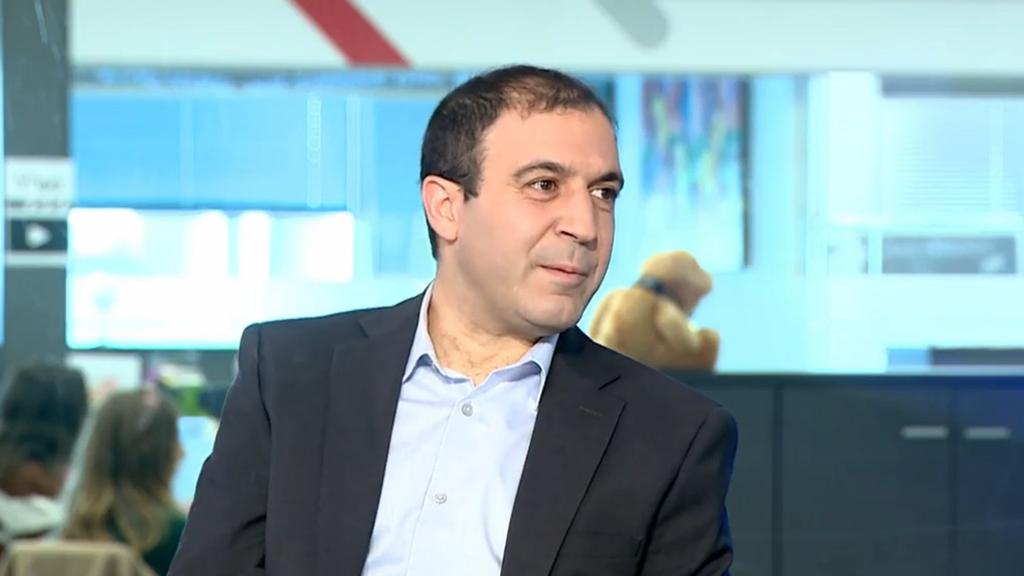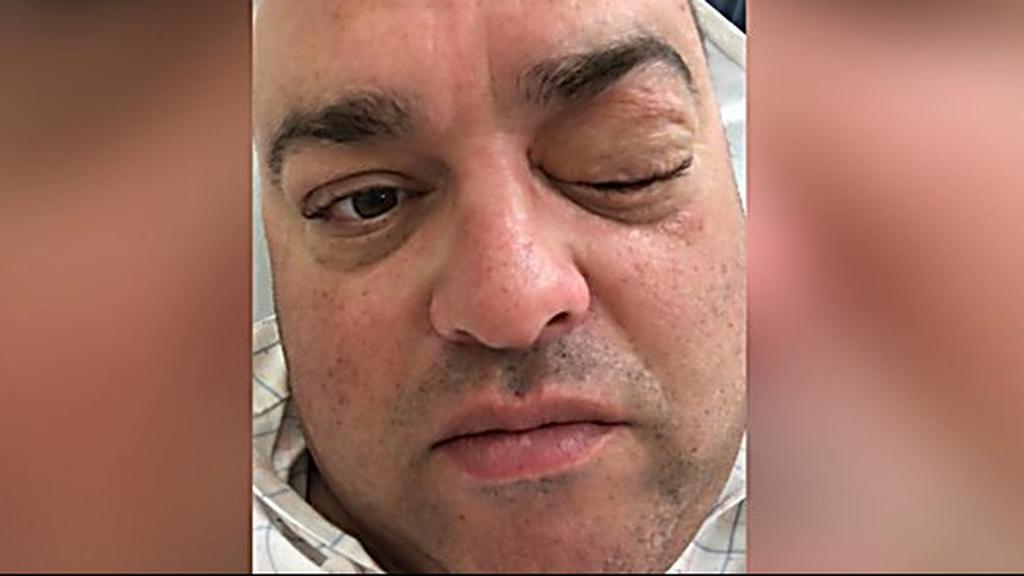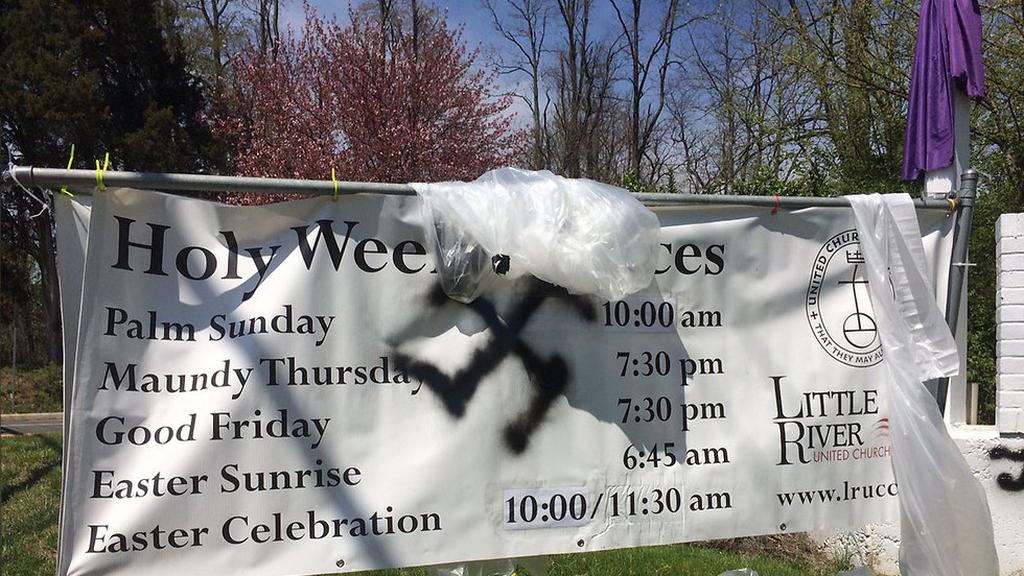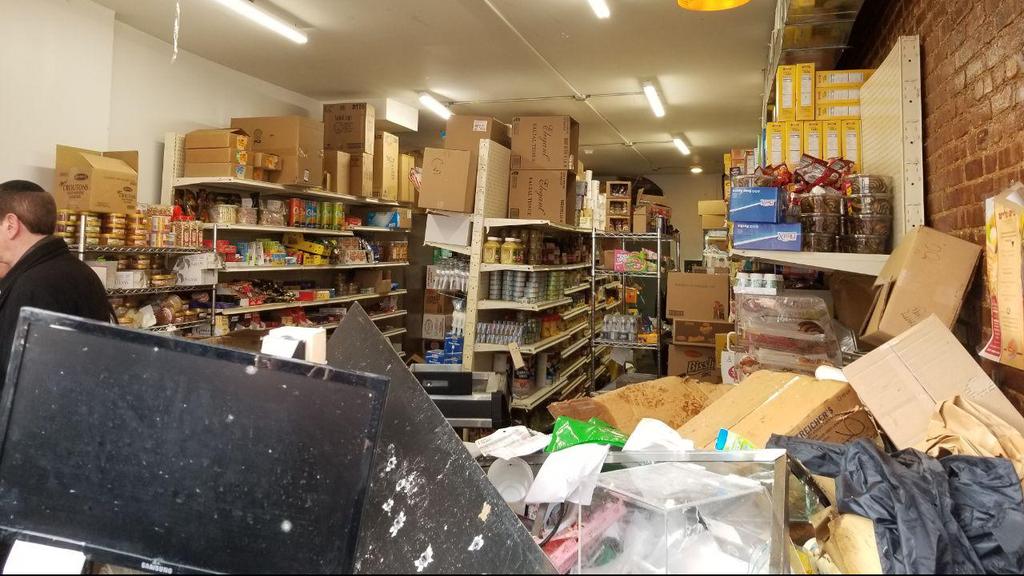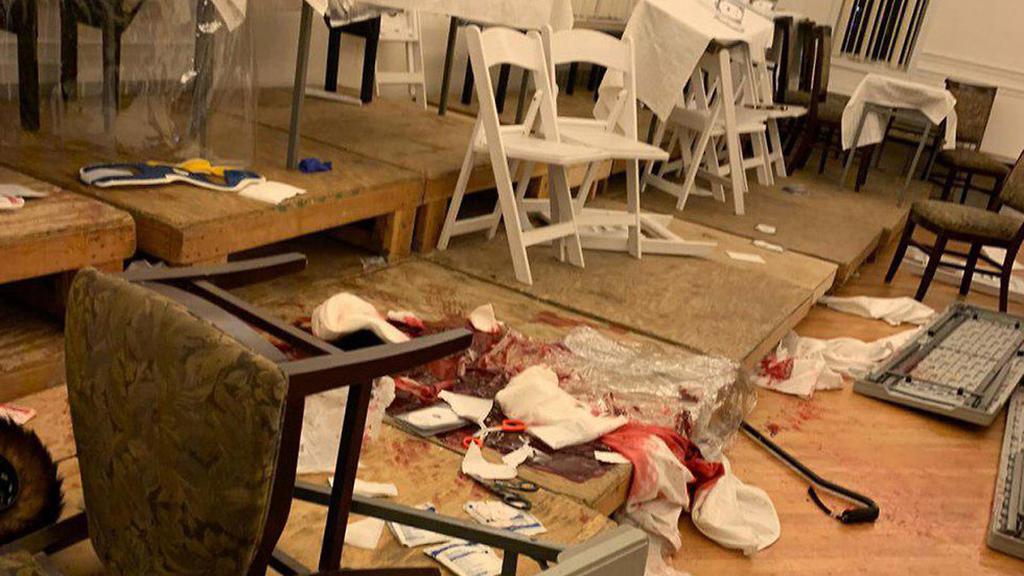The Hanukkah party stabbing in Monsey, New York is just one incident in an ongoing series of anti-Semitic attacks experienced by the Jewish community in the United States over the past year.
"Anti-Semitism these days has become mainstream," says Shoham Nicolet, CEO of the Israeli American Council.
"You can see swastikas on Los Angeles streets. We cannot see it as just a passing phenomenon," he tells Ynet.
Shilo Ben Ze'ev, a Jewish resident of Manhattan, says he was attacked last October and that the police complaint he filed went unanswered.
"On my way to the synagogue, during the last day of the high holiday of Sukkot, I saw an elderly Jewish man who said he had been cursed and spat at," Shilo says.
"We chased after the assailant, got hold of him and he punched me in the eye, broke my nose and damaged my hearing."
Shilo also says the attack was punctuated by anti-Semitic slurs, and - in what he considered to be the most bizarre part of the ordeal - police tried officers to convince him not to file a complaint.
Nicolet says the Jewish community feels these violent attacks painfully. It's a miracle that no such incident has ended in tragedy, he says, but warns they are increasing in frequency.
The number of attacks started ramping up three years ago, he says.
"Anti-Semitic speech used to be on the fringes of society, but has since become mainstream," he says.
According to Nicolet, social media is the main catalyst for U.S., known for its historical role as a refuge of European Jewry, quickly becoming an anti-Semitic stronghold.
"If 12 years ago, you had seen a swastika on a Los Angeles synagogue, it would have been removed overnight and no one would have known about it," Nicolet says.
"Because of social media there is much more public attention and as far as we know, when someone does something [like this] – the copycats follow."
According to him, anti-Jewish rhetoric has become more hateful and today can even be felt in schools.
"Suddenly, anti-Semitic slang has percolated into the mainstream, culture and public discourse," he says.
Attack victim Ben Ze'ev reaffirms this notion. He says after he was beaten in October, he went to the police and found he had to haggle with officers and spend long hours in a bureaucratic nightmare – aimed at deterring him from filing a complaint.
"My wife and I went to the police station on three different occasions," Ben Ze'ev says.
"The first time, they [the policemen] told me that I shouldn't file a complaint as the assailant was a veteran. The second time, they told me they don't know how to deal with such an incident. And the third time, we went directly to a police detective, someone higher up in rank, who had no choice but to help us. Eventually, he agreed to file our complaint. The assailant was sent for psychiatric treatment, but that's it."
Ben Ze'ev also says that New York officials are actively trying to prevent Jews from complaining to the police, recounting a meeting he had on the day of the shooting at a New Jersey kosher market last month, during which a City Hall official told him that, "you Jews love to file complaints."
Ben Ze'ev says people should be asking why these attacks are happening in the first place, and why of all places, in New York City.
"I was attacked in Manhattan," he says. "But in Brooklyn and Williamsburg, where there are large ultra-Orthodox communities, there are daily attacks against Jews. Kids are scared to walk the streets and people are being beaten up."
He adds: "If you are ultra-Orthodox, you'd better start being afraid to walk in the street. The question we all should be asking is what happened all of a sudden; it is an interesting and complicated question."
According to Nicolet, the answer is to make tougher laws.
"The solution is legislation against anti-Semitism," he says. "President Donald Trump came and spoke to us. There is a lot to be done, but we need to start doing something."


